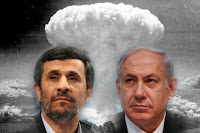Unfortunately, nuclear existence
has adapted seemingly well to the chaos of our society; with the break-up of
the Soviet Union, nations witnessed the birth of the nuclear black market-
selling nuclear capable materials, ranging from low enriched uranium to nuclear
triggers. Now, amiss recent US- led Summit talks revolving around nuclear
security, nuclear terrorism has surfaced as an absolute threat to all
countries. Where do these rogue
rebels and militants acquire their materials? The black market of course…where anything and everything can
be found at cheap rates. Due to
the large stockpiles of nuclear materials in Russia, a lot of the smuggling and
trading of nuclear-materials can be found in this country and in/around the
Baltic region states.
Nuclear
terrorism, “the illegal use or threat of use of radioactive materials” spawned
like a contagion due to the easy access to the nuclear black market. Small and moderate homemade bombs are
going off daily at the hands of rebel insurgents across the globe: from
bombings in the Middle East to large-scale attempts in Russia by the Chechen
rebels from the volatile Russian Caucasus. Hence the hasty attempt by leading countries, both nuclear
and non, to strengthen securities against this growing enterprise through
centers focusing on training country security forces to detect and take action
against unwarranted attack arising from this illegal practice. If we do not significantly curb the
selling of nuclear materials in the black market, which then facilitates
nuclear terrorism, the likelihood of large-scale nuclear-weaponry in rogue
hands will transpire.










